On June 24, 2022, the Supreme Court overturned Roe v. Wade. It was a historical decision that gave states the ability to outlaw or severely restrict abortions for people across the US.

While some may assume that the Supreme Court's decision will mostly only affect grown adults, this is far from the truth, especially since the average age of people with uteruses getting their first period is 12 years old.
And this means many parents or caregivers who have kids under the age of 18 will most likely have a serious discussion with their children, not only about this historical moment, but also about body autonomy.
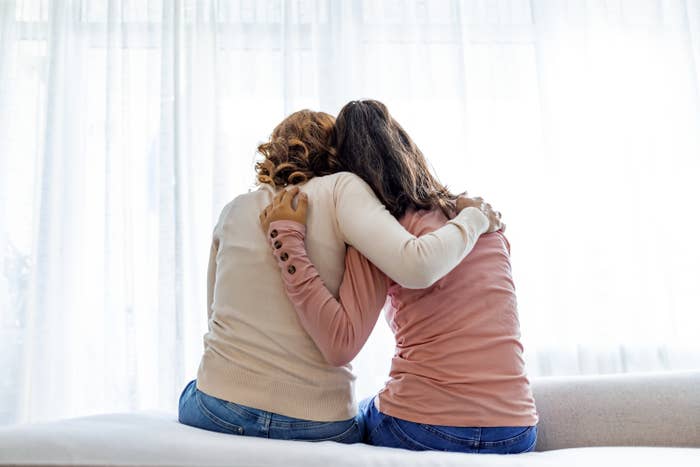
To help give parents the tools to better navigate this conversation — from how to start the conversation to how to create a safe environment for the discussion — we connected with experts.
Our experts are Soo Jin Lee, licensed marriage and family therapist, executive director of Yellow Chair Collective, and cofounder of Entwine Community.

And Reena B. Patel, licensed educational psychologist, guidance counselor, and children's book author.

Here is everything they suggested for how to support your child(ren) during this conversation:
If you've been thinking of discussing the overturn of Roe v. Wade with your children, both Reena and Soo Jin want you to do one very important thing first before you bring up this difficult topic: find time to navigate your own emotions.
"Check in with yourself first so you can be present for your child," Reena told BuzzFeed. "It's OK to allow yourself time to heal and process any emotions."
Reena provided some ways you can start to process: "[You can] journal what you're feeling, let yourself cry or yell, or sleep."
Soo Jin added that processing your own emotions and knowledge about the situation can not only help reduce your emotional reactions during the conversation, but also determine when it's a "good" time to discuss abortion rights and the overturn of Roe v. Wade with your children.

However, if you’re on the fence about having this conversation with your children in the first place, Soo Jin says there are a few reasons why you may want to anyway.
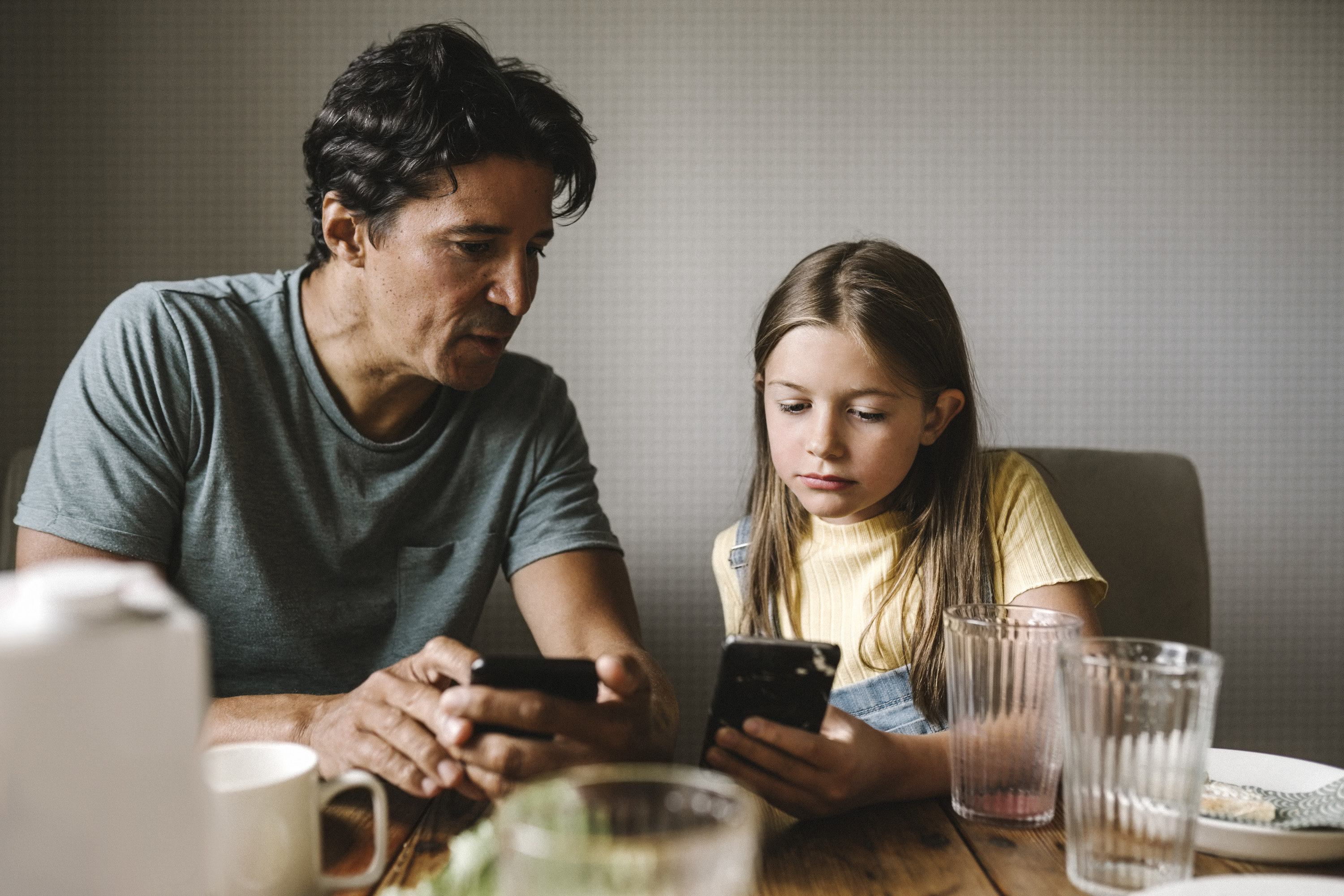
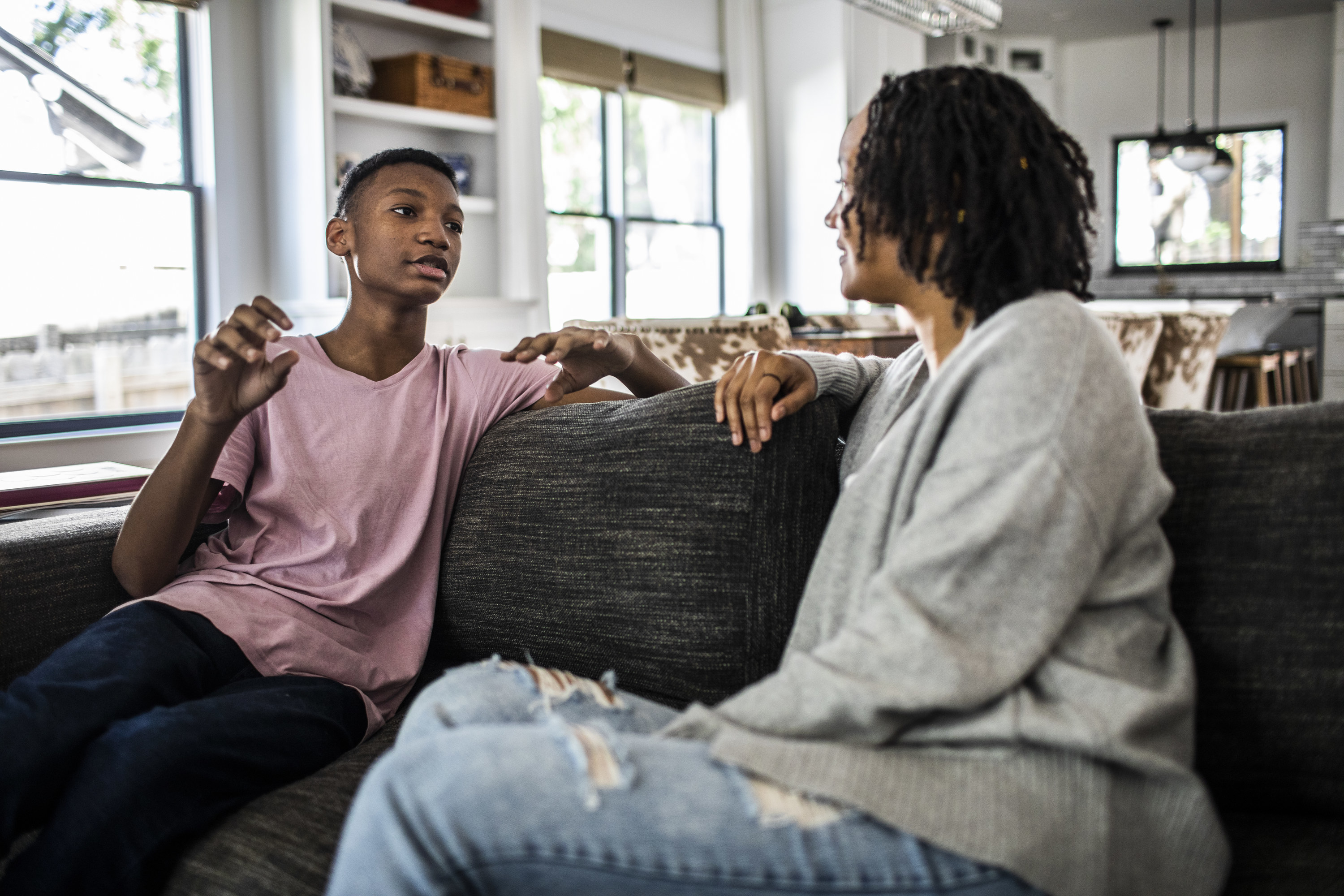
One of the ways you can begin the discussion is by simply asking your kids what they may already know about the topic. "Ask your child if they have heard anything new that’s been going on," Reena said. "Have friends or teachers brought up anything new? Then ask them what they know and their understanding." Basically, you want to have a good grasp of where they've obtained their information.
"Sharing too much information is unnecessary, so start from a place of curiosity about your child’s knowledge of the situation," Soo Jin said.
However, it's important to be highly aware of your child's age before diving further into the topic. Why? Because how you discuss this topic with a teenager will likely not be the same way you may with a 5-year-old.
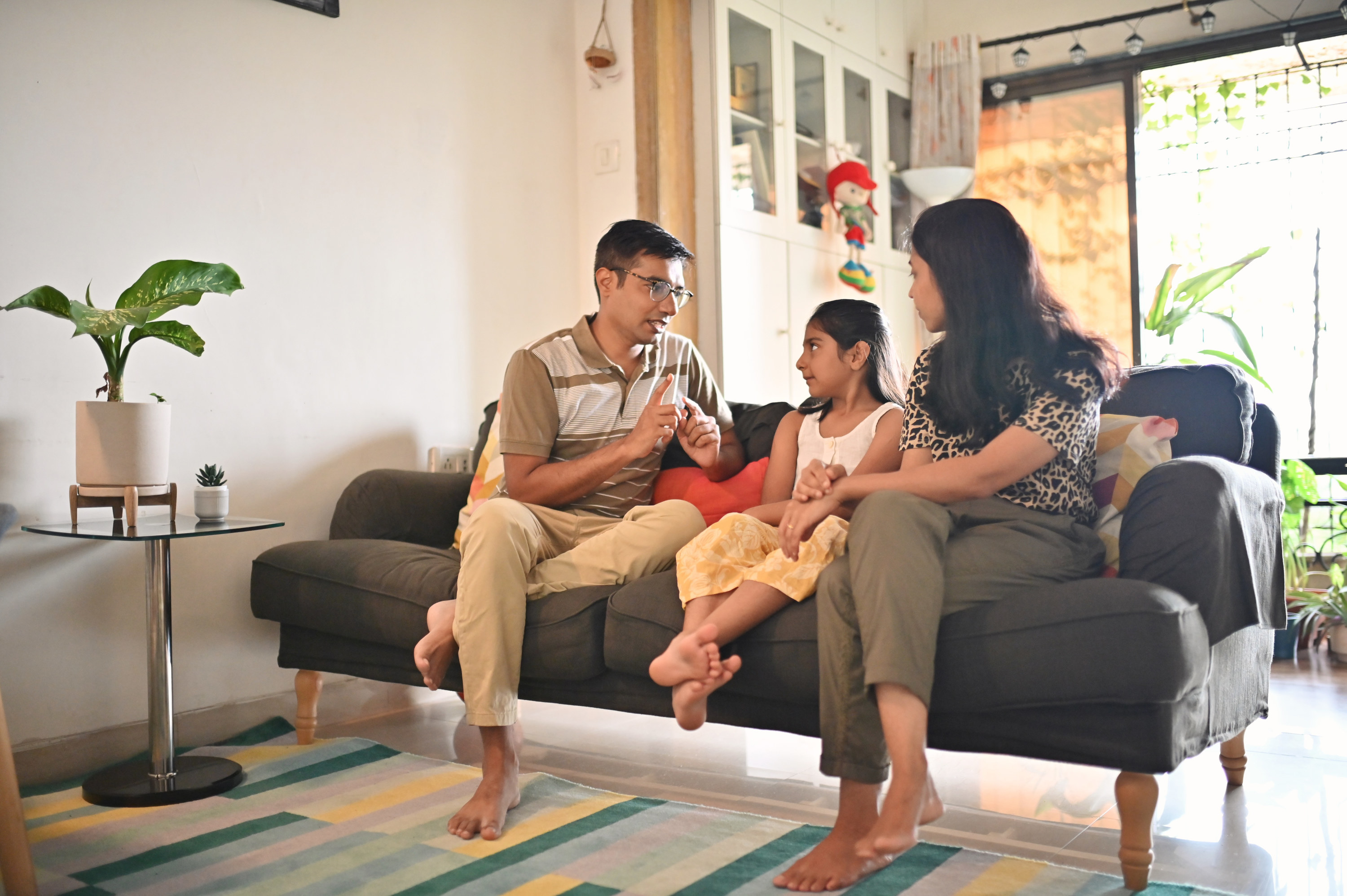
For instance, if your child is between the ages of 5 and 7, the parents or caregivers can decide whether a conversation is even necessary, since young children’s capacity for abstract thinking is limited, Soo Jin said.
"If you choose to introduce the subject, you can use something tangible such as picture books that talk about physical bodies and boundaries as a tool to provide context," Soo Jin said.
"Younger children may not understand this but need reassurance for the emotions," added Reena.
But if your children are old enough to have this discussion, below are some ways you can tailor the language to best meet their needs and emotional maturity, according to Soo Jin.
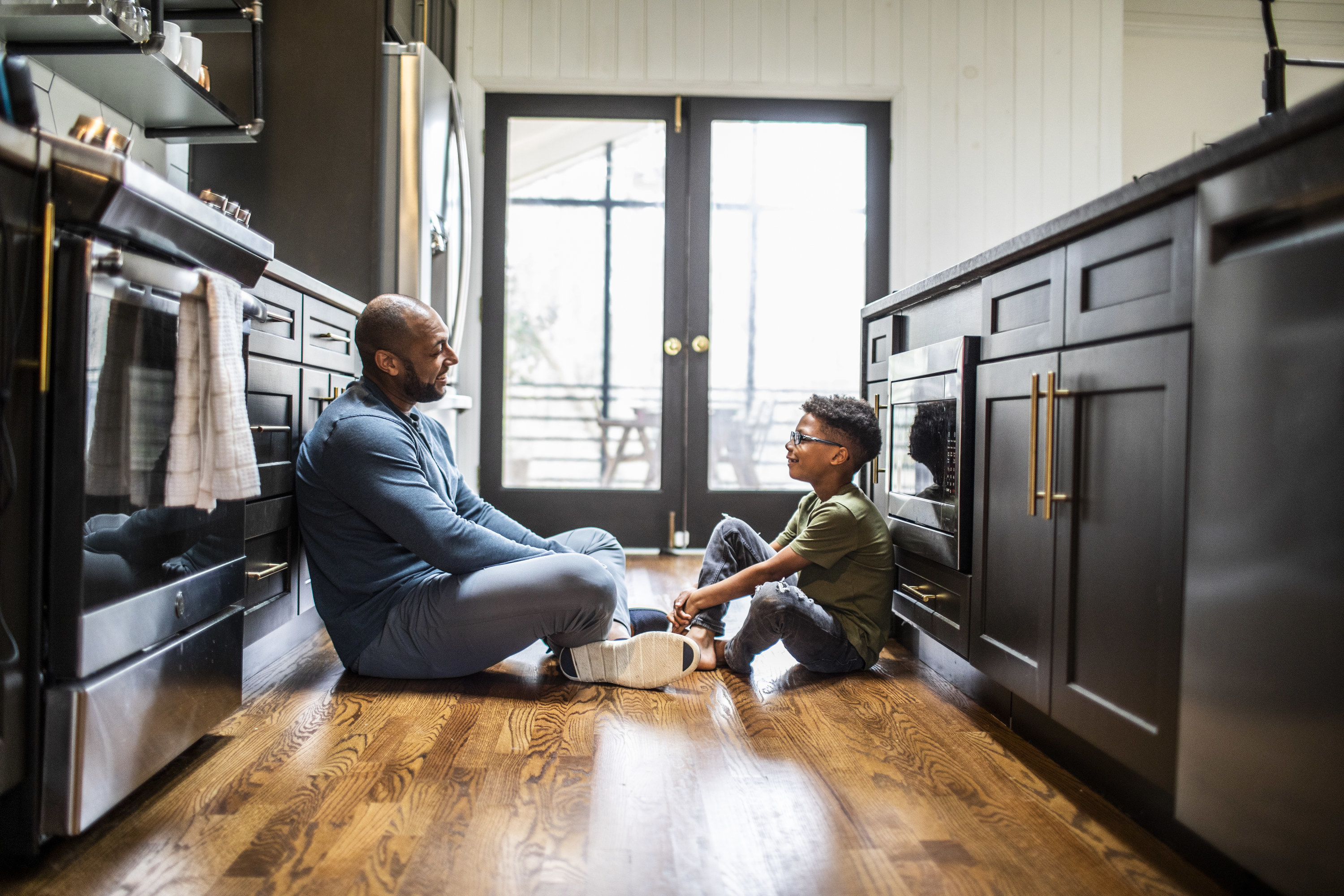
The truth is, no matter the age, you want to make sure that you're creating a safe and open environment for your children to ask questions and/or share their feelings.
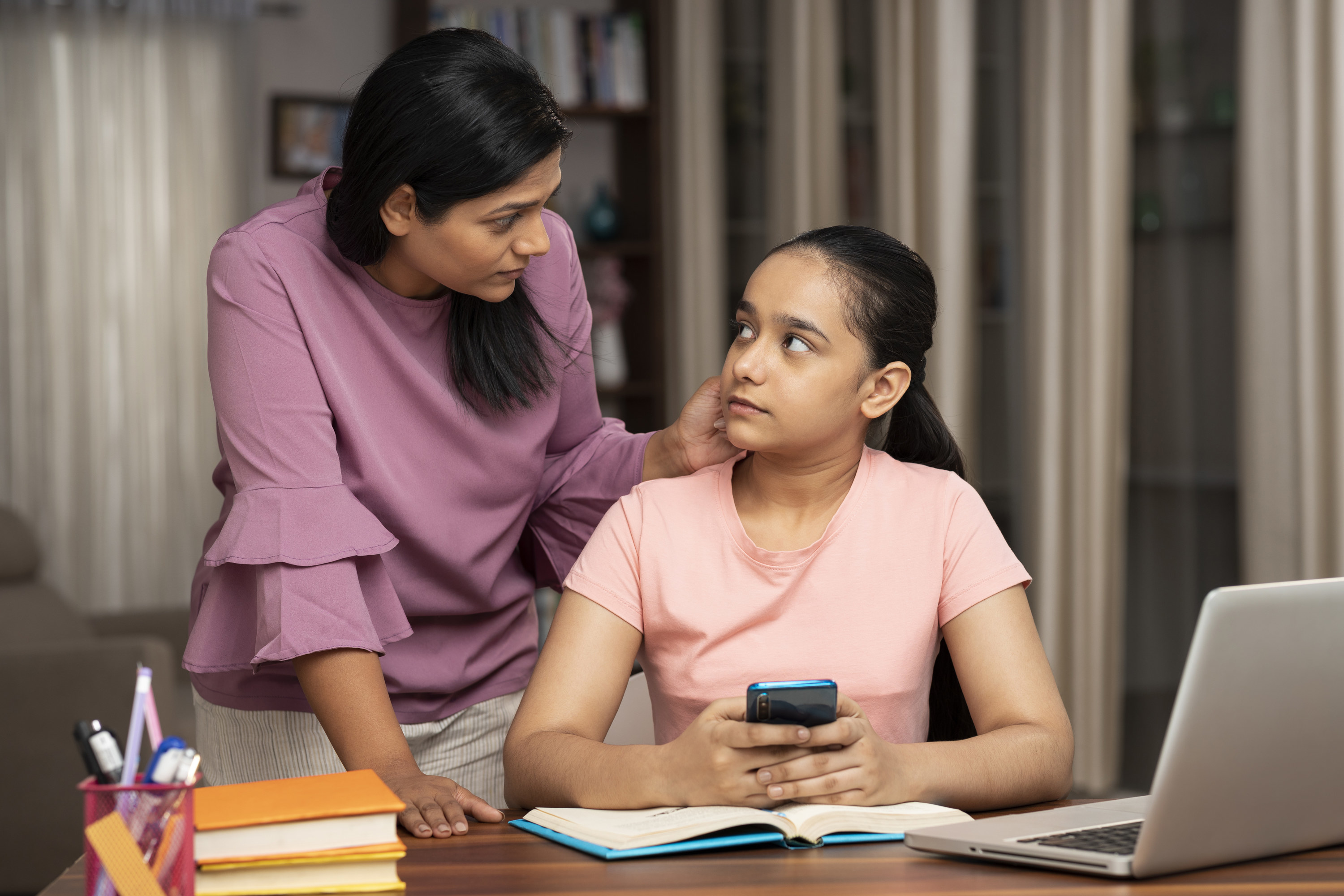
Some of the ways you can do this are by being honest about the current events, acknowledging their emotions, and maintaining consistency. "Create space to not only talk about the difficult matters but also have room to communicate about their everyday experiences and daily routines as a reminder to them that their world will remain consistent," Soo Jin said.

But even though you want to be honest about the current events, that doesn't mean you only want to focus on the opposing opinions — instead, try to only talk about the facts.
"Parents and caregivers are only human, and we have our opinion about people that disagree with our values," Soo Jin said. "I recommend that adults refrain from focusing the conversation on the opposing opinions and their own negative reactions. Children will pick up on the messages of divisions and polarizations. Children pay attention to adults’ actions and words. They pick up on our biases more than we may even be aware of."
"The topic should stay within historical facts, current events, and emotions of the child(ren)," Soo Jin said. "Also, for young children, try to stay away from discussing the topic right before bedtime to prevent nightmares or sleep issues."

And if your children do become upset during the conversation or later on in the day, it's important to validate and hold space for their feelings. "Try not to move past the uncomfortable feelings and let them process it," Reena said. This can look like giving a hug, finding a safe shelter such as under a blanket, or giving smooth strokes on their backs. You can also engage in deep breathing with them and acknowledge their emotions by verbalizing them, Soo Jin said.
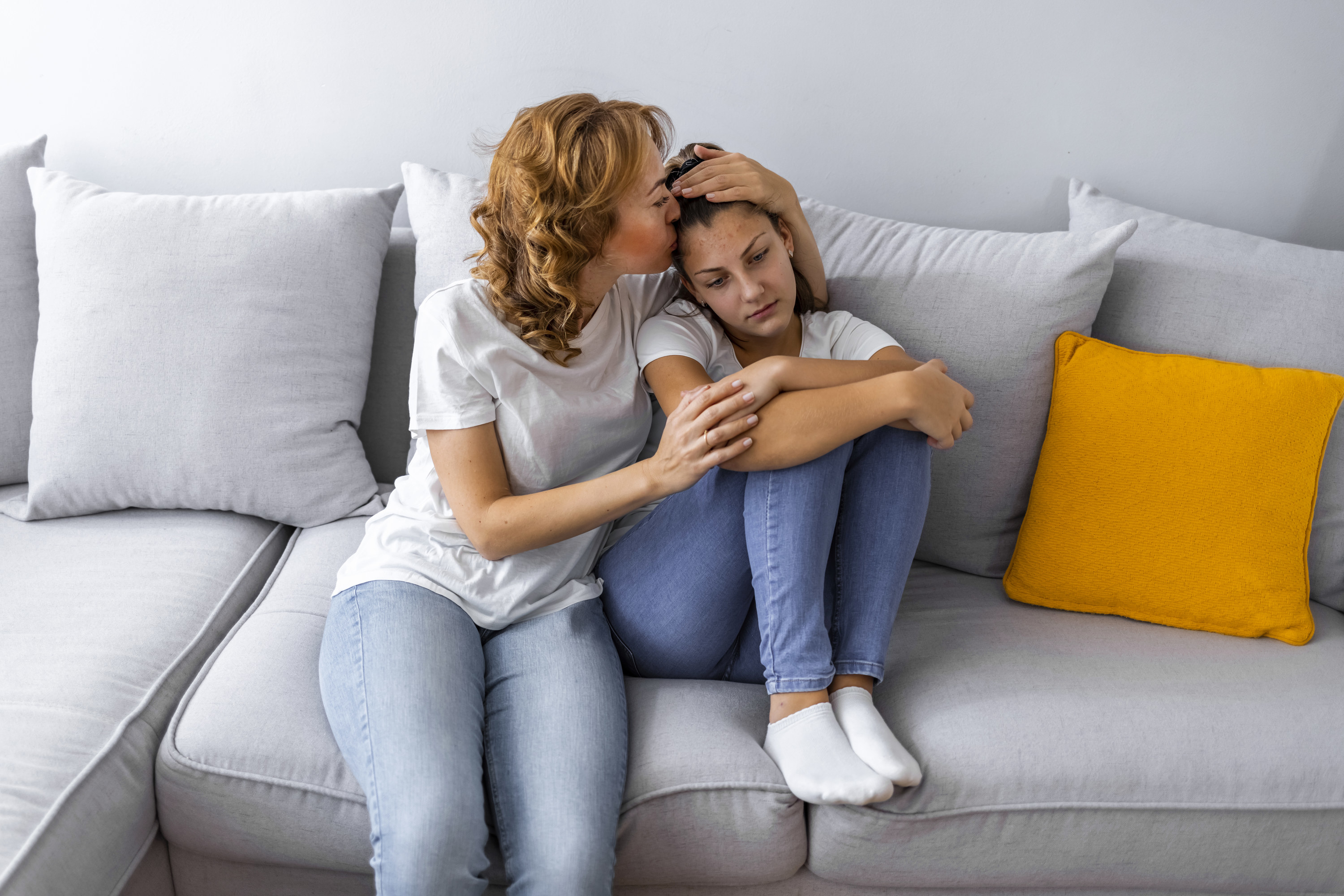
While this might be a difficult conversation to have with your children, it is an important one to have. Just try to imagine yourself in their shoes when you're thinking of the kind of support they may need, Reena said. "As parents or caregivers, you can not only eliminate any misinformation they may have, but also be able to answer questions in a safe and judgment-free way," she added. You can also talk about the importance of community care, having hope, and knowing how they can make a difference.

Just remember to listen to your instincts and be kind to yourself — because at the end of the day, you know your children best and what they may or may not need, and just giving them the space to feel heard is important.
Editor’s Note: BuzzFeed supports a person’s right to an abortion. If you, like us, feel impassioned about abortion rights, learn more or find a local fund to donate to here.
